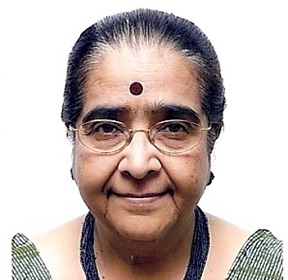
Dr Sreemathi Seshadrinathan
IndiaTitle: Do underprivileged children have more risk factors for Cardiac operative mortality? - A Retrospective Analysis
Abstract:
This is a retrospective analysis of 5653 underprivileged children from 1988 to 2019. In the general population risk factors such as surgeries under RACH1 categories, myocardial protection,Post-operative RV function, Postoperative bleeding, Hb > than 14 Gms % and 40% PCV , contributed to mortality. Arrhythmia, Complete Heart Block , Bleeding, Long CPB Time > 2 1/2 hrs , Long ACC Time> 1 1/2 hrs , Long Mechanical Ventilation > 48 hrs , Inotropes duration >96 hrs, Electrolyte Imbalance, Metabolic Imbalance, and Postoperative respiratory infection contributed to mortality in the early era but only morbidity later. In the underprivileged, underweight malnutrition, anaemia, and hypoproteinaemia were risk factors that contributed to cardiac operative mortality in the early era. 3 phases in the history in 3 different centres showed that it was possible to control operative mortality (gross mortality decreased from 5% to 2.73%). Morbidity contributing to stay in the hospital for more than 7 days and mechanical ventilation duration of more than 48 hrs has become less than 1%. Underweight malnutrition became a problem in the earlier surgical era when weaning from mechanical ventilation. Ryle’s tube and parenteral nutrition were the solutions. Malnutrition was in 87%, anaemia in 70 % and Hypo proteinemia in 60% of underprivileged children. Maintaining a Haemoglobin percentage of more than 7.5 Gms % and PCV above 22% during cardiopulmonary bypass reduced mortality due to multi organ failure. Contracted haemic prime, reduced tube lengths and neonatal, infant and paediatric membrane oxygenators and hemofilters were mainly responsible for the gross mortality reduction to 3.92%. Addition of Albumin to the prime and postoperatively controlled hypoproteinemia. Collaboration under IQIC (International Quality Improvement Collaborative) for congenital heart diseases under Children Hospital, Boston helped in reducing mortality to 2.73%. Postoperative respiratory infection when treated meticulously preoperatively, remained at 2.73 %. Study is on to reduce it to less than 1%. During the last 6 yrs, there have been no mortality or morbidity due to malnutrition, anaemia or hypo proteinemia. Follow up of these children has revealed that 90% of them progressively increased their weight and height from the first month postsurgical. Those who lived in the earlier era and later era also presented the same. Since all of them returned to their homes in the same socio economic environment, this showed correction or repair of their cardiac defects per se helped them to gain weight and height. 20% of them reached the standard height and weight as per age according to Indian standards.
Biography:
47 years of involvement in Cardiovascular and Thoracic Surgery in various capacities as Assistant Professor,Professor and Head of the Department ,Government General Hospital and Institute of Child Health and Hospital for Children, Madras Medical College. Performed around 11, 000 surgeries with 7000 surgeries performed on newborns, infants and children less than 12 years. Involved in various research activities and publication of papers in National and International Journals. Served as examiner for MCh (CTS) in different Universities. At present involved in a project Solution for Cardiac Afflicted Needy (SOCAN) which involves Free Cardiac Surgery & follow-up for the under-privileged.

